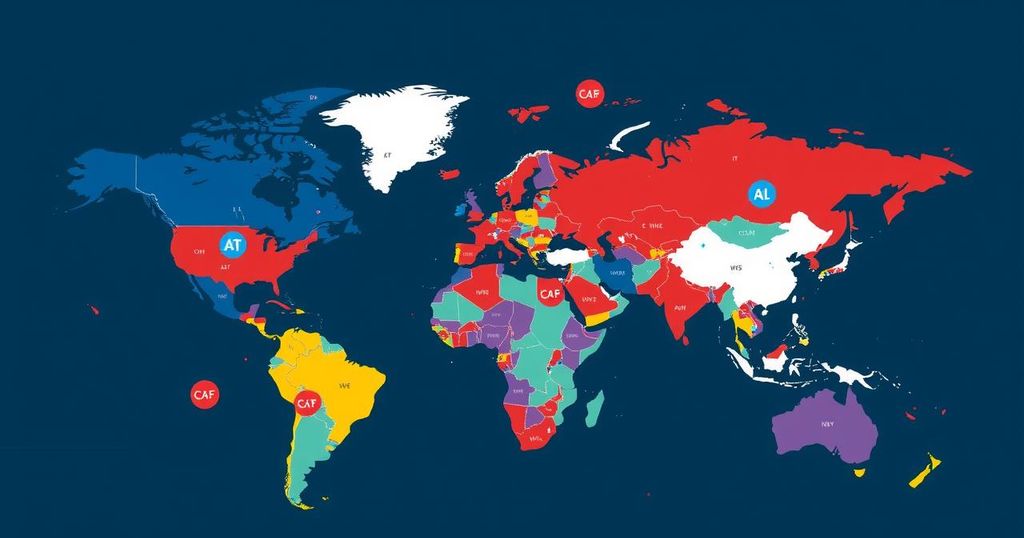Global Trends in Incumbent Electoral Losses: Insights for the Democratic Party
Incumbent parties worldwide have faced significant electoral losses, with over 80% of democracies experiencing declines this year. While Democrats in the U.S. encountered challenges, they recorded among the smallest losses of high-income nation incumbents. Economic performance and voter dissatisfaction contributed to these trends, indicating potential shifts in future electoral dynamics.
Recent analyses have highlighted the electoral struggles faced by incumbent parties across the globe, including the Democratic Party in the United States. Despite an overall trend of incumbent parties losing ground in democratic elections, the Democrats managed relatively modest losses when compared to their international counterparts. By the end of 2024, voter turnout is expected to reach unprecedented levels, revealing a global discontent with current governments. Data indicates that more than 80 percent of democracies that held elections this year observed declines in the seat count or vote share for incumbent parties. This phenomenon extends to several nations where long-dominant parties, such as those in Japan and South Africa, have lost significant political power. Voters in nations like Senegal and Sri Lanka made historic decisions, electing opposition figures amid widespread dissatisfaction. In contrast, while the U.S. reflected these general trends, the Democratic Party’s electoral performance has proven to be relatively resilient, incurring some of the smallest losses among incumbents in high-income democracies. Vice President Kamala Harris came close to securing crucial swing states, which suggests a potential stabilization of support for the party. One of the reasons for this relative success could be attributed to the U.S. economy, which, unlike many global counterparts, displayed notable resilience following the COVID-19 pandemic. Though inflation and housing costs concern American voters, indicators such as GDP growth provide a more favorable backdrop compared to many other nations grappling with sluggish economic conditions. Moreover, while national security and other pressing concerns bolstered the incumbents in countries like Mexico and Finland, the U.S. political discourse did not prioritize security to the same extent. Nevertheless, economic anxieties and dissatisfaction with governmental direction significantly influenced voters’ decisions during the elections. Ultimately, the Democratic Party’s situation aligns with the global wave of disesteem for incumbent authority. Although the Democrats faced significant challenges, they may find a silver lining in not being incumbents in future elections, potentially changing the dynamics in their favor.
The context for this assessment rests in a broader trend observed across democracies worldwide, where incumbent parties are facing a wave of electoral defeats. As the global political landscape shifts dramatically, many voters express dissatisfaction towards their governments, leading to historic outcomes. This trend is particularly notable in light of the economic conditions following the pandemic, which have deeply influenced voter sentiment, prompting calls for change in established political structures.
In conclusion, while Democrats confronted significant electoral challenges akin to those faced by incumbent parties globally, their relatively smaller losses indicate a certain resilience. The U.S. economy’s performance, despite domestic issues, provided a more favorable context compared to other nations. As trends in global dissatisfaction with incumbents persist, the Democrats might have an advantageous opportunity in future elections as they shift from their current role.
Original Source: abcnews.go.com




Post Comment